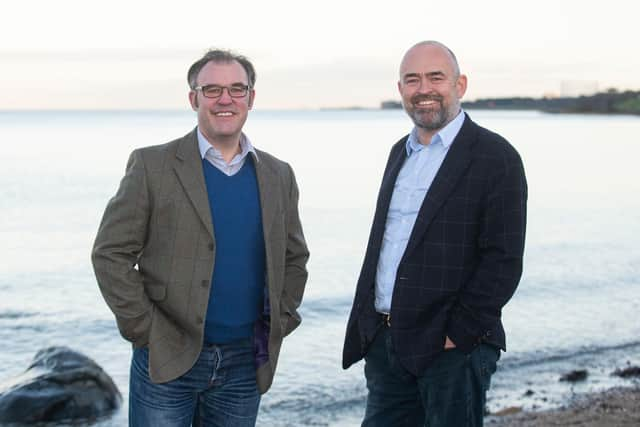Tidal power firm QED Naval riding crest of seven-figure funding wave
The sum has come from more than 1,150 investors via a Seedrs crowdfunding campaign, and further investment provided by Glasgow-based venture capital firm Kelvin Capital, which has supported the business from an early stage, with Scottish Enterprise awarding match funding via its Scottish Co-investment Fund. Other early-stage backers of the tidal power firm include Donald Houston, serial entrepreneur and owner of Ardnamurchan Estates.
QED said the latest capital injection will enable it to complete the deployment of its pioneering, patented Subhub tidal platform – which it says enables tidal energy to be deployed over large distances, installed quickly and cost-effectively, in a single operation, amid various weather conditions – at its Yarmouth Tidal Test Centre on the Isle of Wight, and showcase its yield benefits to the sector.
Advertisement
Hide AdAdvertisement
Hide AdThe funds will build towards commercial sales of the platform, it added, saying Subhub supports every stage of a tidal turbine’s life, from integration ashore to deployment, installation and retrieval for maintenance, and can reduce deployment and maintenance costs by up to 60 per cent and improve yields by 48 per cent.


QED MD Jeremy Smith said completing the funding round means it can now move ahead with the next phase of trials, adding that amid a global tidal energy market worth £76 billion, and a predicted gross value added of £1.4bn by 2030 supporting some 4,000 jobs, “the UK – and Scotland in particular – has a unique opportunity to capitalise on its natural resources”. He continued: "The growth potential of [tidal power] is enormous, growing from approximately 10 megawatts currently, to 1,000MW by 2030. This is well within the industry’s capabilities and enables it to play its part in net zero targets.”
Innovative
Angus Hay, director of Kelvin Capital, said green tech start-ups are going to be key as Scotland looks to be net zero by 2045, adding: “Kelvin Capital are delighted to continue to support what we believe to be a truly innovative technology in the tidal energy sector.”
Kerry Sharp, director of entrepreneurship and investment at Scottish Enterprise, added: “It’s great to see the company moving to the next phase of its trials. Technology like the platform being developed by QED Naval is of huge societal importance as we make the just transition away from the use of fossil fuels and towards renewable energy sources.”
QED also said that, in partnership with the Islay Energy Trust, it has applied for a seabed lease in the Sound of Islay, with a view to achieving annual energy production of just over 10 gigawatt hours. Keith Murray, chief commercial officer at QED, said: “We urge the Scottish government to invest in the infrastructure required to develop the supply chain for tidal power now, especially as we see governments in Wales and Canada investing and taking a lead.”
The tidal power firm was founded by Mr Smith, a Naval architect with 20 years’ experience in the defence research and marine industry, and its other milestones to date include securing EU funding and a place on Interreg’s €48.2m (£42.2m) Tidal stream Industry EnerGisER Project known as Tiger.
Comments
Want to join the conversation? Please or to comment on this article.